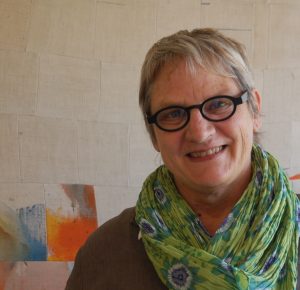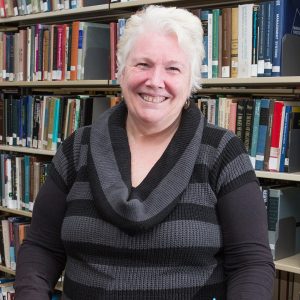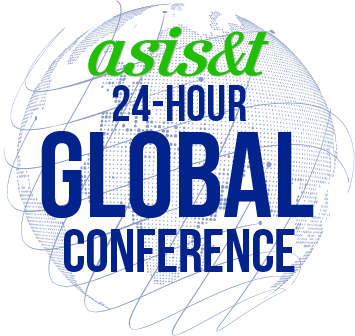24-Hour Conference Keynotes
 Rebecca Davis (9:30 am EDT)
Rebecca Davis (9:30 am EDT)
African American Undergraduates and Academic Library Use During COVID-19
Dr. Rebecca Davis is an Assistant Professor in the School of Library and Information Science at Simmons University. Her research is under the umbrella of diversity issues in academic libraries. Her publications can be found in the Journal of Education in Library and Information Science, The Journal of Academic Librarianship, the Journal of Library Administration, and New Library World. In 2020, she received a Laura Bush 21st Century Library Program grant from the Institute of Library and Museum Services (IMLS) for her project African American Undergraduates’ Use of Academic Libraries. She teaches user services courses. She is also a member of several professional associations, including ALA, ALISE, and BCALA. She currently serves as chair of ALA’s Library Instruction Round Table (LIRT) Awards Committee.
 Stephen Neely (12:00 pm EDT)
Stephen Neely (12:00 pm EDT)
Vaccine Hesitancy and Exposure to Misinformation
Stephen Neely (PhD, North Carolina State University, 2013) is an Associate Professor in the School of Public Affairs at the University of South Florida, and he serves as coordinator of the School’s undergraduate program in Leadership and Public Service. His areas of specialization include survey research, quantitative data analysis, and public policy. Since April of 2020, Neely’s research efforts have been focused primarily on the COVID-19 pandemic, including the political, policy, and communicative dimensions of the ongoing public health crisis. During that time, he has conducted 5 state and national surveys examining public opinions and preferences around COVID-mitigation policy. Additionally, he has translated this work into academic scholarship examining (1) the use of social media for COVID-related information seeking, (2) the impact of misinformation on vaccine hesitancy, and (3) the under-researched area of vaccine-booster hesitancy. These works have appeared in peer-reviewed journals such as the Journal of General Internal Medicine, the Journal of Medical Internet Research, and PEC Innovation. Recent survey data releases are available on his USF faculty page, at https://www.usf.edu/arts-sciences/departments/public-affairs/about-us/faculty/sneely.aspx and are frequently shared on Twitter via @StephenNeelyUSF
Abstract
Despite the widespread availability of SARS-CoV-2 vaccines in the USA, vaccine hesitancy continues to represent a significant impediment to the attainment of herd immunity and the end of the COVID-19 pandemic. We conducted a web-based survey of 600 adults in the state of Florida between June 3 and June 14, 2021 in order to better understand the prevalence of vaccine-related misinformation and common objections to COVID-19 vaccination. High levels of misinformation exposure were observed among participants, with 73% reporting some exposure to misinformation about COVID-19 vaccines in the prior 6 months. Furthermore, exposure to misinformation was directly correlated with vaccine hesitancy. Among those who did not report any exposure to misinformation, 73.8% of respondents were vaccinated. That number fell to 62.9% with exposure to just one misinformation theme and 52.2% for six or more (χ2 = 11.349; φ = 0.138; p ≤ 0.05). Politicization was also found to be a major factor in vaccine hesitancy, with 73.4% of self-identified Democrats being vaccinated, compared to only 58.5% of Republicans and 56.5% of Independents (χ2 = 16.334; φ = 0.165; p ≤ 0.001). Both misinformation exposure and political affiliation were strong predictors of vaccination even after accounting for other demographic predictors. The findings add to previous research on misinformation and vaccine hesitancy by quantifying exposure to specific misinformation themes and identifying its relationship to vaccine hesitancy. Overcoming these impediments to vaccination will require strategic and targeted messaging on the part of public health professionals, which may be aided by collaboration with political thought leaders. Understanding the volume and nature of misinformation themes the public is exposed to regarding COVID-19 vaccines may aid public health officials in targeting this vaccine messaging to more directly address reasons for vaccine hesitancy.
 Christine D'Arpa (3:45 pm EDT)
Christine D'Arpa (3:45 pm EDT)
Shifting the narrative from resilience to recognition: Public library workers and work during the COVID pandemic
Christine D'Arpa joined the School of Information Sciences faculty at Wayne State University in Detroit as Assistant Professor in August 2017. Her research centers on public libraries and community engagement with a special focus on health and food justice work by public libraries in the US. One of her current projects examines how work in US public libraries has changed and is changing under COVID as well as the impact of those changes on library workers. She has presented her research at regional, national, and international conferences including i-Schools Conference, Digital Library Federation, ALISE, AERI, and ASIS&T. D'Arpa is a co-investigator on a National Leadership Grant from the Institute of Museum and Library Services (IMLS), Community Health and Wellness: Small and Rural Library Practices, Perspectives, and Programs (#LG-18-19-0015-19).
 Brian Detlor (4:15 pm EDT)
Brian Detlor (4:15 pm EDT)
Promoting Networking, Sharing, and Learning for Marginalized Populations through Community-Led Digital Literacy Training
Brian Detlor is Professor of Information Systems at the DeGroote School of Business, McMaster University, Canada. He also is Visiting Professor at the Centre for Social Informatics, School of Computing at Edinburgh Napier University in Scotland. He currently serves as Past-President of the Association of Information Science and Technology (ASIS&T). His recent research project involves the investigation of digital literacy training programs led by public libraries and other local community organizations. His research has been published in several leading Information Systems and Library & Information Science journals, including the Journal of the Association for Information Science and Technology, Journal of Management Information Systems, Information Systems Journal, Government Information Quarterly, and College & Research Libraries. More information about Dr. Detlor can be found at https://www.degroote.mcmaster.ca/profiles/brian-detlor/.
Abstract:
From communicating with loved ones via social media to surfing the Internet, digital literacy keeps us more connected and better informed. It also enriches lives. As COVID-19 solidifies the importance of being digital literate, it also amplifies pre-existing inequalities to accessing meaningful digital literacy learning opportunities. A lack of access to digital literacy training particularly affects the wellbeing of marginalized populations, such as seniors, newcomers, and lower-income families. In response, local community organizations, such as public libraries and social service agencies, are taking the lead in this area by delivering digital literacy training to community members who may have no others means by which to receive such instruction. However, how best to deliver such instruction is not well-understood. Neither are the challenges confronting such delivery, as well as solutions to overcome such obstacles. This presentation reports on recent research findings that provide theoretical contributions and practical recommendations in this problem area. Organizational factors that foster or challenge digital literacy initiatives are described, as well as user considerations that impact community member uptake, digital literacy skills development, and digital literacy appreciation. Next steps in the presenter’s research agenda in this space – both currently underway (e.g., national surveys to public libraries across Canada) and planned – are also discussed.

Samuel K.W. Chu (5:20 pm EDT)
Learning as Usual During pandemic: Self-Directed Learning with a Multilingual eBooks System and Gamified Q&A Platform
Dr. Chu is an Associate Professor at the Faculty of Education, the University of Hong Kong (HKU). He has obtained 2 PhDs in Education – one focusing on e-Learning from University College London, Institute of Education (2017) and another one focusing on Information and Library Science from HKU (2005). His areas of expertise include AI literacy, digital literacy, health literacy, gamified learning, 21st Century Skills, Social Media in Education, school and academic libraries. He has involved in over 70 research projects with a total funding of US$ 10,214,144. He has published more than 400 articles and books, with over 100 of them appearing in international academic journals. Furthermore, Dr. Chu is the Co-Founder and Co-Editor for the journal Information and Learning Sciences. He is also a Member of the Humanities and Social Sciences Panel of the Research Grants Council of HK. He has received many awards including the Faculty Outstanding Researcher Award in 2013, Faculty’s Knowledge Exchange Award in 2016 and Excellent Health Promotion Project Award from Food and Health Bureau in 2017. He's ranked among the top 1% of scholars in 2 research areas: Information & Library Sciences and Education (PLoS Biol 18(10), 2020, a study by Stanford University), and achieved an h-index of 40 over the years. He has been a Consultant for UNESCO Bangkok, Education Bureau, Oxford University Press, Pearson Education Asia, and was the ASIS&T Director of Chapter Assembly (2020-2021). He is also an Advisor for EdTech startups at HK Science and Technology Parks and the Founding Chairman of Academy 22 Education for All Foundation. One of his advisee companies is now valued at US$ 38 million.
Abstract:
In the past 2 years, students’ learning has been badly influenced across the globe. The speaker in this talk will share how students’ learning can be maintained by fostering students’ self-directed learning through using a multilingual ebooks system and a gamified Q&A platform.
The speaker explains how we can help release students’ powerful self-learning abilities. Self-directed learning enables “learners take charge of their own learning process (diagnosis learning needs, identify learning goals, select learning strategies, and evaluate learning performances and outcomes) - https://www.igi-global.com/dictionary/self-directed-learning/26210.
Through using a proper ebooks system and a gamified Q&A platform, which challenges students’ understanding of the ebooks they read (or listen), students can self-learn to read and write effectively. With suitable scaffolding support and encouragement from teachers, many students can learn effectively and efficiently via self-directed learning.
The speaker will also explain how these systems/platforms can be designed so that they will cater to the basic psychological needs (autonomy, competence and relatedness - according to self-determination theory), which are necessary to engage students to learn actively.
 Prof. Dr. Khalid Mahmood Malik (7:00 pm EDT)
Prof. Dr. Khalid Mahmood Malik (7:00 pm EDT)
Role of Social Networking in Professional Development of Librarians: Cases from Developing Countries
Professor Dr. Malik is Professor of Information Management at the University of the Punjab, Lahore, Pakistan. Currently he is the Director of the Institute of Information Management and Dean of the Faculty of Information and Media Studies (Former Dean, Faculty of Economics and Management Sciences and Director, Institute of Information Management) at the university.
With a qualification of post-doctoral research at the University of California, Los Angeles, USA, and 30+ years of experience in the field of education he has about 200 publications on his credit. He has supervised many doctoral, M.Phil. and masters’ theses. He is working for many research journals as editor, reviewer and editorial board member. He has conducted many training programs for librarians and faculty of higher education institutions. For more detail, please click https://khalidmahmood.pk/about-me/
Abstract
Development of professional knowledge and skills is always paramount in all professions. Particularly in the era of rapidly changing technology the field of librarianship and information management needs more training opportunities. Due to lack of funding librarians from developing countries face a barrier in accessing such learning opportunities. Social networking has been proved a low cost solution for professional development particularly after the emergence of COVID-19 pandemic. This paper presents some examples from developing countries on how LIS professionals used social networking to share and enhance their knowledge and skills. It highlights the social media platforms they used, the benefits they had from the use of SNS, and barriers they face in adopting social media. Recommendations are also provided to make a better use of social networking for professional development of librarians.
 Roxanne Missingham (11:00 pm EDT)
Roxanne Missingham (11:00 pm EDT)
Acting Nationally – Thinking Globally: Achieving a Nationally Agreed Framework for Research Data Management for Australian Universities
Roxanne Missingham is University Librarian and Chief Scholarly Information Officer, Australian National University responsible for ANU libraries, archives, press, records, privacy, copyright and digital scholarship in Australia. She was previously Parliamentary Librarian and Assistant Director General, Resource Sharing Division, National Library of Australia. She has a long career in libraries and IT focused on the development of digital delivery and digital services in large networks. Formerly President of the Australian Library and Information Association (ALIA), she is currently a copyright lead for the Council of Australian University Librarians and member of many national and international digital research library committees. For details please click https://www.linkedin.com/in/roxannemissingham/
Abstract
Australian universities are treasure houses of research data that contains extraordinary knowledge, supporting industry and research development around the globe. Research data is an asset that underlies and validates the findings of their researchers and feeds into new research, motivating the preservation, sharing and re-use of data. However, research data also poses a number of challenges, including the growing burden of resourcing, the management of access and sensitivity, and the need to make decisions about longer-term retention and disposal.
The framework and infrastructure to support research data management is often spread over several departments or business areas within universities. Data must be managed within a range of university policies and legislation. The diversity of requirements and systems at times means that there is a lack of clarity around institutional requirements.
This major project, led by the Australia Research Data Commons with 25 university participants, is creating a nationally agreed framework to streamline the creation of national data assets and make collaboration between universities easier.
In developing the framework and tools, the project brings a new approach to support effective data management. It seeks to optimise information capabilities within the university sector. It is providing systematic improvements in research integrity and data reuse.
Collaboratively developing a Nationally Agreed Institutional Research Data Management Framework informs the design of policy, procedures, infrastructure and services and improves the coordination of Research Data Management within and between universities. By sharing challenges, experiences, advice, new directions and opportunities for collaboration, and testing these shared outputs locally, the project is creating resources that advance Research Data Management for all Australian universities.
The Institutional Underpinnings program has completed the Framework development phase. Key elements of the framework include Culture Change, Policy, Retention and Disposal, Support, Training and Guidance, Data Management Plans, Sensitive Data, Active Data Management, Sharing, Publication and Open Research, Data Ownership, Identifiers and Metadata, Funding and Sustainability, Standards and Guidelines, Compliance, Governance and Digital Preservation. The presentation will outline the findings of the consultation and the collaboration process used in this phase.
The project is now in its second phase. It is expanding the resources created to support better practice through testing of the key concepts and developing more detailed guidance and case studies.
The framework is technology agnostic and not prescriptive. It establishes guidance material and strengthens national capability to provide data governance and management within all universities. The developments are designed to assist in compliance with the Australian Code for Responsible Conduct of Research, jointly developed by the Australian Research Council the National Health and Medical Research Council and Universities Australia, which researchers is mandatory for grant applications. It also enables compliance with international best practice.
The project is innovative both in the extent of engagement across the university sector including researchers, libraries, research support staff and information technology staff and the breadth of vision to achieve a national capability to support better practice in all universities. The successful launch of the framework in December 2021 sets the scene for new products in 2022.

Ina Fourie (1:45 am EDT)
Information Behavior as Research Lens for Life: Our Challenges, Joys, and Opportunities
Dr. Ina Fourie is a full professor and Head of Department of Information Science, University of Pretoria. She is also Chair of the School of Information Technology at the University and the EXXARO Chair in Extended Reality (XR) that is hosted in the Department of Information Science. Ina is a rated South African researcher with international recognition of her work. Her main research focus is on information behavior, current awareness services, information literacy and autoethnography with special reference to cancer and palliative care and other existential contexts. She is a regular speaker and author in national and international contexts ranging from library and information science and education to healthcare. Ina serves on the editorial advisory boards of various international journals such as Library Hi Tech, Online Information Review, Information Review and The Bottom Up. Ina is currently Vice Chair of the ISIC (Information Seeking in Context) Steering Committee and part of the ASIS&T (Association of Information Science and Technology) Executive Board as Treasurer. She has published more than 130 articles, books and conference papers and has presented in more than 16 countries. Her most recent books edited and co-authored include Autoethnography for librarians and information scientists (edited, Routledge, 2021), Third Space, information sharing and participatory design (co-authored, Morgan and Claypool, 2021) and Navigating digital literacy (co-authored, 6th edition, Pearson South Africa, fully interactive e-book, 2021). Website address: https://www.up.ac.za/information-science/article/1913412/prof-ina-fourie-bio
Abstract
On a daily basis in all contexts of life, at different points of time, all people experience varying levels of challenges, joys and opportunities. Experiences of any one of these do not mean that another emotion and experience may not be felt at the same time: sadness, success and failure related to something else. Often, experiences overlap and intermingle in one day. Often, people face deep uncertainty and anxiety. Information-related experiences in contemporary society seem more intense, more driven, more complex and intermingled. Pressure to make sense, to cope, to meet with the expectations of peers and society and to avoid negative experiences such as fraud, cybercrime and being a victim of misinformation, are more prominent and urgent. Intensities of experiences and needs for information as well as the need to share and disseminate information can be both very intense and very low-key, depending on the context, situation, task(s) and responsibilities. Although social networking and rapidly evolving technology may offer support, these can also add challenges with specific regard to exclusion and increasing the divide in society. There are numerous opportunities for deeper immersion in human experiences, e.g. through immersive technologies, reality shows, and social media video streaming. Work-life, studies and everyday life do not take place in separate niches. In such contexts, information behavior, a sub-discipline of Information Science and field of study, can offer a lens for life not only for researchers, but also for individuals. How do we understand information behavior from fast-changing, entwined and immersive perspectives? How can researchers change their way of thinking about information behavior research and how can individuals prepare for uncertain futures? How can individuals comprehend their needs and experiences? The presentation will briefly explain how individuals can be sensitised to a conglomeration of information activities that manifests in their daily experiences of challenges, joys and opportunities. These activities include information foraging, information sharing, information encountering, information processing, information seeking, information avoidance, information use, and identifying and expressing needs for information. To these can be added social networking and crowdsourcing. There are more. How do individuals then make sense of their experiences and cope? What can information behavior researchers offer and how can information behavior (in combination with information and digital literacy) be presented to individuals – all people – ordinary and professional people – as a lens on life? The presentation will use fast-paced immersive lived experience to highlight core issues that might be considered in an entwined entanglement of daily experiences involving intended, explicit as well as unintended information behavior. In conclusion suggestions will be offered to extend the arguments to information behavior research foci and intervention research.

Isto Huvila (4:30 am EDT)
A Relational Information Science? For Networking, Sharing and Learning
Professor Isto Huvila holds the chair in information studies at the Department of ALM (Archival Studies, Library and Information Studies and Museums and Cultural Heritage Studies) at Uppsala University in Sweden and is docent (~adjunct professor) in information management at Information Studies, Åbo Akademi University in Turku, Finland. His primary areas of research include information and knowledge management, information work, knowledge organisation, documentation, research data, and social and participatory information practices. The contexts of his research ranges from archaeology and cultural heritage, archives, libraries and museums to health information and e-health, social media, virtual worlds and corporate and public organisations. Huvila's work has been funded, among others, by the European Research Council, the Swedish Research Council and the Academy of Finland and he has given numerous invited talks and published broadly on the topics ranging from information work management, archaeological information management, social media, virtual reality information issues to archival studies and museum informatics, and health information. He received a MA degree in cultural history at the University of Turku in 2002 and a PhD degree in information studies at Åbo Akademi University (Turku, Finland) in 2006.
